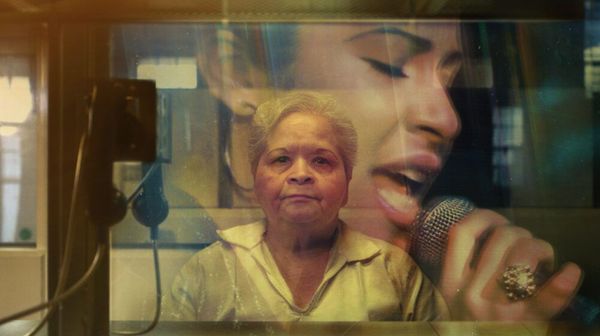
My favorite kind of history makes you feel you are living inside every moment the author creates. This can only happen when the fruits of rigorous research are assembled with the flair of a novelist. Chad L Williams, a Brandeis professor, does all that and more in his riveting new biography of William Edward Burghardt Du Bois.
The first Black man to earn a Harvard PhD, Du Bois’s passion and thoughtfulness still make him America’s most important Black intellectual. Besides his brilliance, he never shied away from friction: another useful quality for any good biographer.
Williams’s focus is Du Bois’s role in the first world war and the book about it which preoccupied him for many years, though he never managed to publish it. But Williams also includes the most important details of Du Bois’s life before and long after.
One of the many pleasures of this volume is that author and subject are equally interesting writers.
Du Bois established himself as a thoughtful radical and eager combatant with The Souls of Black Folk, an essay collection published in 1903, into which Williams says he poured “all his brilliance and anguish”. Combining “philosophical clairvoyance, historical audacity, literary imagination, sociological precision, autobiographical introspection, political urgency, musical lyricism, and poetic emotion”, it was “a text that defied classification”.
It also made Du Bois a declared enemy of Booker T Washington, who founded the Tuskegee Institute in Alabama. Washington pleased white supremacists by declaring that “in all things purely social we can be as separate as the fingers”. Williams writes that Du Bois portrayed his rival as anointed by white capitalists “North and South to legitimize the social, political and economic marginalization of the race”.
It was here that Du Bois offered one of his first famous insights: the color line endowed Black Americans with the peculiar sensation of “double consciousness”. This was the “sense of always looking at one’s self through the eyes of others, of measuring one’s soul by the tape of a world that looks on in amused contempt and pity … One ever feels his two-ness, an American, a Negro; two souls, two thoughts, two unreconciled strivings; two warring ideals in one dark body, whose dogged strength alone keeps it from being torn asunder.”
Williams discovered Souls as an undergraduate. It has been a touchstone ever since. The “dogged strength” of African Americans forms the spine of this biography.
Six years after publishing his foundational volume, Du Bois became a founder of the National Association for the Advancement of Colored People (NAACP), where he was director of research and, most importantly, editor of its monthly magazine, the Crisis. This gave him a direct line into the hearts and minds of tens of thousands of African Americans, for 24 years beginning in 1910.
In 1915, Du Bois correctly identified the Great War as proof that “European civilization has failed”. But he also believed the loyalties of people of color had to lie with England, France and Belgium, despite their terrible colonial records, because a triumph by Germany would be the worst possible outcome.
Du Bois used his pulpit at the Crisis to celebrate the role of Black Africans fighting for France, photos of the tirailleurs sénégalais carrying arresting captions like: “Black soldiers from Senegal fighting to protect the civilization of Europe from itself.”
When Woodrow Wilson led America into battle in 1917, Du Bois was fiercely anti-war: “It is an awful thing! It is Hell. It is the end of civilization. It is an appeal to barbarism.” But with what Williams calls “a mix of resignation, pragmatism, patriotism, and hope”, Du Bois supported entry, because he saw it as “an opportunity for African Americans to claim their full civic rights”.
Du Bois clashed frequently with the NAACP board but he had a crucial ally in Joel Spingarn, the chairman. This was an early example of the Black-Jewish alliance which would be an important feature of the civil rights movement of the 1950s and 60s. Spingarn enraged many Black newspapers when he advocated for a segregated training school for Black officers. But Du Bois agreed that, given the depths of prejudice, this was a necessary evil. He called the segregated facility “a temporary measure” designed to “FIGHT, not encourage discrimination in the army”.

The secretary of war accepted the NAACP request. More than 1,000 Black officers were trained. But when Du Bois got himself a passport and passage to France, he discovered bigoted white officers making Black lives hell. They spread the libel that Black soldiers were raping vast numbers of French women. One colonel requested the removal of Black officers from his regiment, because they supposedly prevented the development of “mutual confidence and esprit de corps”. Black officers, Du Bois wrote, were disgusted by the “seemingly bottomless depths of American color hatred”.
He surveyed French mayors, all over the country. Reports came back: Black Americans were treating French women with much greater respect than white American troops did. The entire 369th Infantry Regiment, the Black Rattlers from Harlem, embedded with the French army, received the Croix de Guerre.
When the war was over, Du Bois and 5,000 others watched in awe as the French honored its troops of color with a gala celebration at the Palais du Trocadéro. The Théâtre-Français acted out “battlefield exploits of the colonial troops … and singers from the opera gave a rousing rendition” of the Marseillaise. The spectacle “surpassed any tribute to Black men” Du Bois “had ever seen”.
I can only hint at the number of beguiling moments that fill the pages of this great book. The best part of this job is an occasional chance to celebrate great work. This gripping history is a cause for celebration.
The Wounded World: WEB Du Bois and the First World War is published in the US by Macmillan







